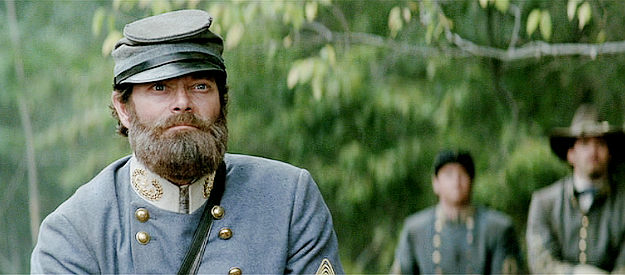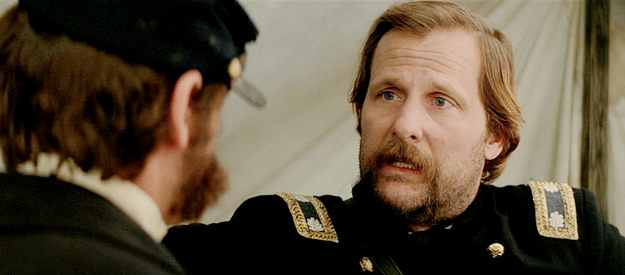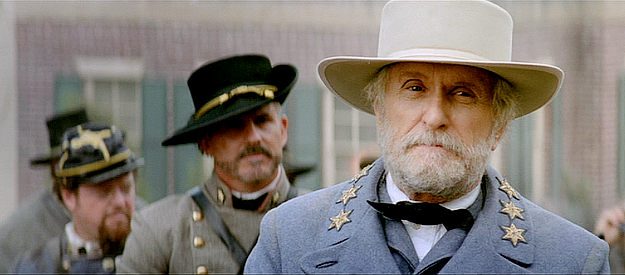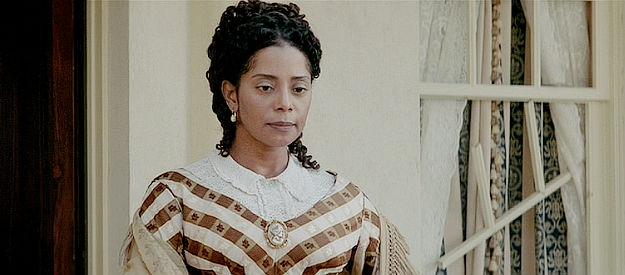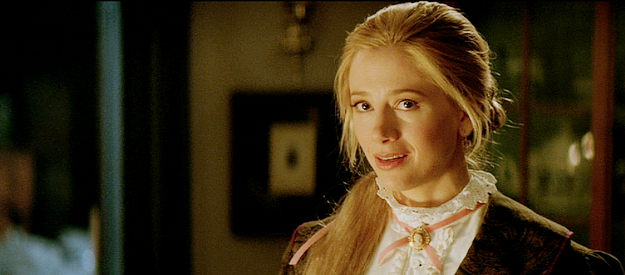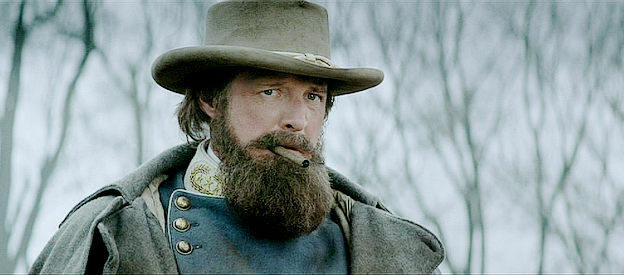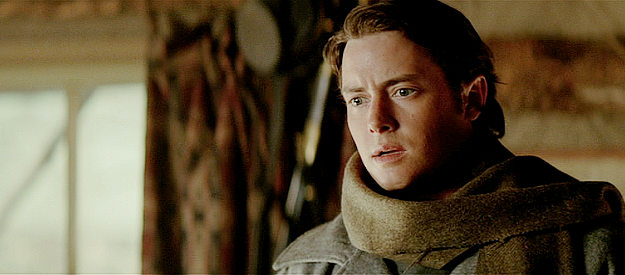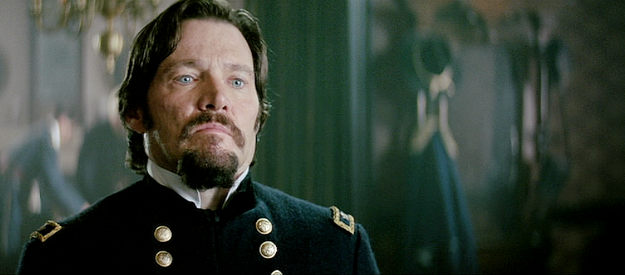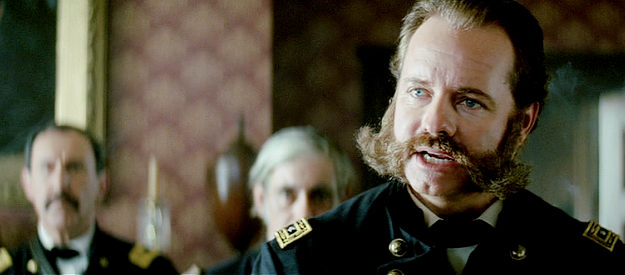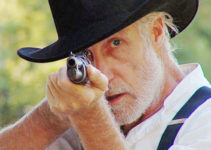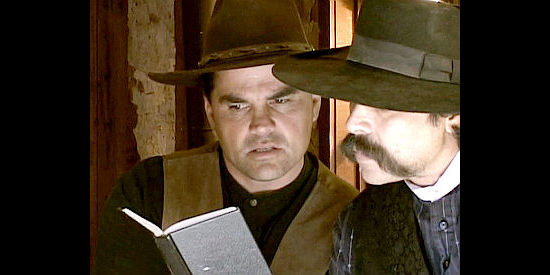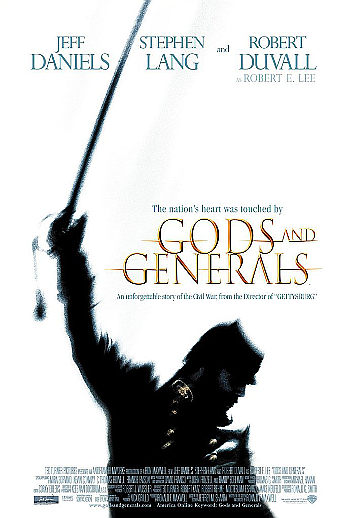 As the Civil War breaks out, Robert E. Lee (Robert Duvall) is offered command of the U.S. Army.
As the Civil War breaks out, Robert E. Lee (Robert Duvall) is offered command of the U.S. Army.
He declines and winds up commanding troops for the Confederacy instead.
And, at the Battle of Manassas, he finds his right hand man in Stonewall Jackson (Stephen Lang), who earns his nickname with a heroic stand that turns the tide of the engagement.
Back in Maine, Joshua Lawrence Chamberlain (Jeff Daniels) finds himself drawn to serve and winds up with a commission leading troops in the 20th Maine.
Both Jackson and Chamberlain will wind up in Fredericksburg, Va., in December 1862.
The ensuing battle winds up being another glorious victory for the Southern troops.
Chamberlain and his surviving men are forced to spend two nights pinned down with the dead in front of Marye’s Heights.
Jackson will lead another triumphant charge at Lee’s request at the Battle of Chancellorsville before a nighttime reconnaissance mission takes a trafic turn for him and the Confederate cause.
Take away the wonderful cinematography and the grand-scale battle scenes, and this is a $60 million piece of crap, far inferior to 1993’s “Gettysburg.”
In fact, the film was such a flop that the third part of a planned trilogy, “The Last Full Measure” was never made.
Director Ron Maxwell later blamed the reception on cuts to a film that originally ran nearly five hours.
Given what’s left after the cuts — scenes that seem created only to lead up to a memorable Civil War moment or quotation, and eloquent soliloguys from characters who have no business delivering them — well, that’s a tough excuse to swallow.
The bigger problem seemed to be the need for a storyline to tie together the first two-plus years of the Civil War.
Maxwell and company settled mostly on the story of Stonewall Jackson, played by Stephen Lang. Let’s just say he was far more effective as the flamboyant George Pickett in “Gettysburg” than he is here.
On top of all that, the filmmakers opened themselves up to criticism with their focus on the Confederacy and its generals’ heroic efforts against sometimes overwhelming odds.
That criticism might be easier to shrug off if the prominent black cast members helped balance out the story with an accurate depiction of slavery.
Instead, we get a female slave who insists on protecting her owners’ Fredericksburg home, even if it puts her life in danger. And a male slave who’s just thrilled to cook for Stonewall Jackson and proclaims that he’d be defending Virgina too, if only he could. Oh, my.
Ted Turner financed the project and has a small role as a Confederate officer.
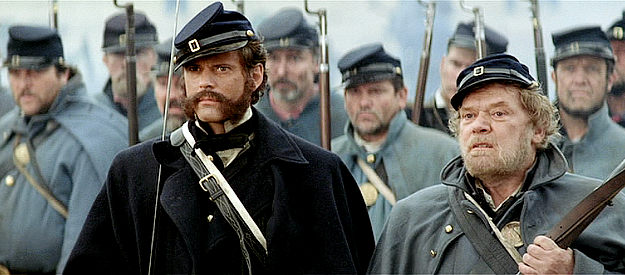
C. Thomas Howell as Thomas Chamberlain and Kevin Conway as Buster Kilrain in Gods and Generals (2003)
Directed by:
Ron Maxwell
Cast:
Stephen Lang … Stonewall Jackson
Jeff Daniels … Joshua Lawrence Chamberlain
Robert Duvall … Robert E. Lee
Bruce Boxleitner … James Longsteet
Billy Campbell … George Pickett
Jeremy London … Alexander ‘Sandy’ Pendleton
Joseph Fugua … J.E.B. Stuart
Alex Hyde-White … Ambrose Burnside
Matt Letscher … Adelbert Ames
C. Thomas Howell … Thomas Chamberlain
Kevin Conway … Buster Kilrain
Mira Sorvino … Fanny Chamberlain
Kali Rocha … Anna Jackson
Lydia Jordan … Janie Corbin
Martin Clark … Dr. George Junkin
Donzaleigh Abernathy … Martha
Frankie Falson .. Jim Lewis
Runtime: 219 min. / 280 min. (director’s cut)
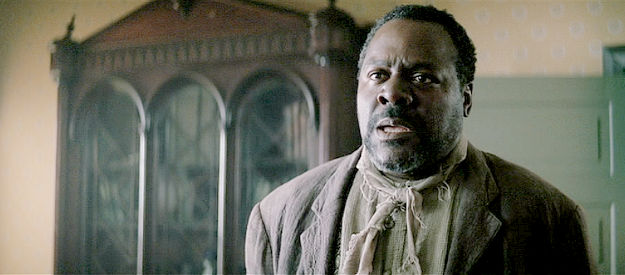
Frankie Falson as Jim Lewis, being recruited as a cook for the Rebel army in Gods and Generals (2003)
Memorable lines:
Rev. Pendleton: “The men have decided to name the howitzers Matthew, Mark, Luke and John.”
Stonewall Jackson: “Reverend, I’m sure your men will do their utmost to spread the gospel wherever they meet the enemy.”
Joshua Lawrence Chamberlain: “All these thousands of men. Many of them not much more than boys. Each one of them some mother’s son, some sister’s brother, some daughter’s father. Each one of them a whole person loved and cherished in some home far away. Many of them will never return. An army is power. Its entire purpose is to coerce others. This power can not be used carelessly or recklessly. This power can do great harm. We have seen more suffering than any man should ever see, and if there is going to be an end to it, it must be an end that justifies the cost. Now, somewhere out there is the Confederate army. They claim they are fighting for their independence, for their freedom. Now, I can not question their integrity. I believe they are wrong but I can not question it. But I do question a system that defends its own freedom while it denies it to an entire race of men.”
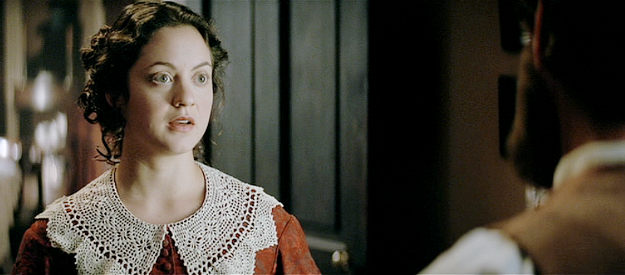
Kali Rocha as Anna Jackson, learning her husband will be heading off to war in Gods and Generals (2003)
Sgt. Buster Kilrain: “Some o’ the lads that I left Ireland with are on the other side as well. Imagine that. We left together to escape a tyranny. And end up shooting at one another in the land of the free.”
Union officer, reading a letter from President Lincoln after the Battle of Fredericksburg: “We are thankful that the casualities have been comparitively so small.”
Sgt. Buster Kilrain: “Compared to what? The Scots at Culloden? The English at Bunker Hill? The French at Waterloo?”
Sgt. Buster Kilrain as the 20th Maine’s attack at Fredericksburg is about to begin: “Seems a terrible long distance up that hill.”
Sgt. Thomas Chamberlain: “It’ll be shortened by those in front.”
Sgt. Buster Kilrain: “Beggin’ your pardon, sir; the only thing that will be shortened by those in front is their lives.”
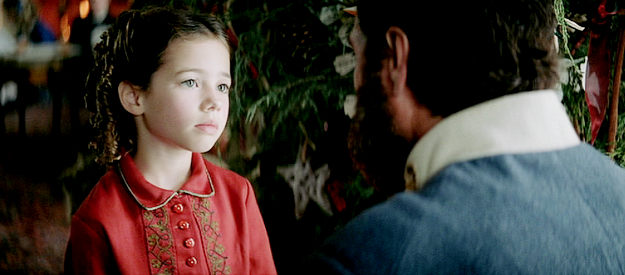
Lydia Jordan as Janie Corbin, the young girl Stonewall Jackson’s befriends in Gods and Generals (2003)
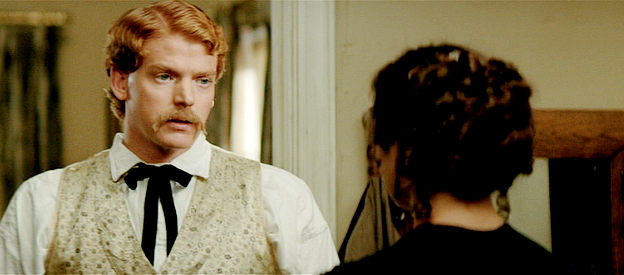
Sean Pratt as Dr. Hunter McGuire, sharing news of Jackson’s prognosis with his wife in Gods and Generals (2003)
